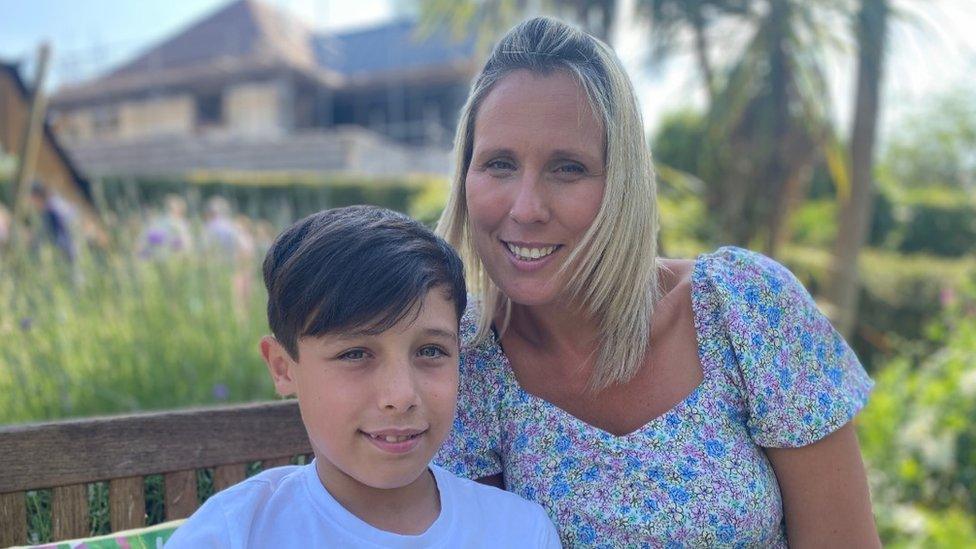Cystic fibrosis 'miracle drug' Kaftrio best Christmas gift - family
- Published
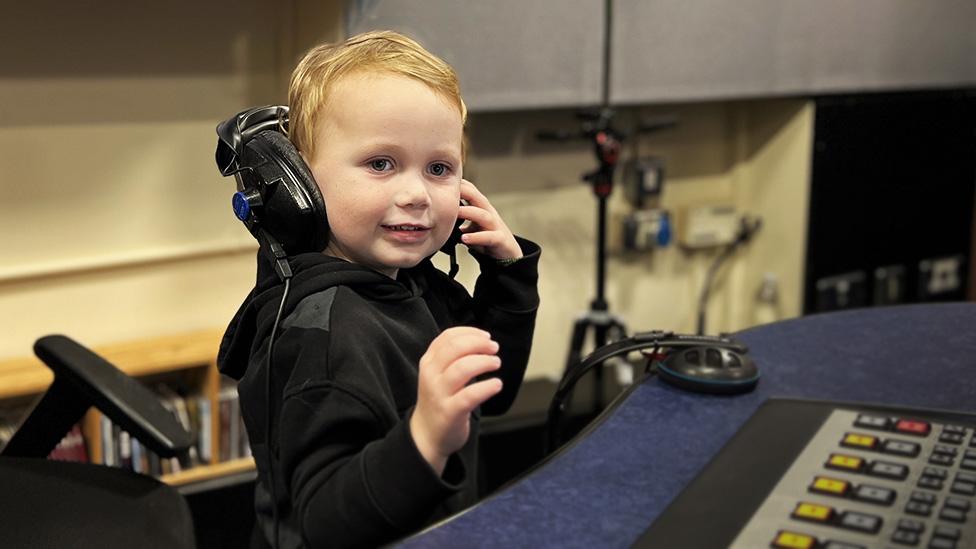
Jesse was diagnosed with cystic fibrosis when he was just six weeks old
The mother of a four-year-old boy with cystic fibrosis says being told her son can have a so-called "miracle drug" to prolong his life is a "Christmas gift".
On Wednesday, the government's medicines agency extended the licence for the drugs Kaftrio and Kalydeco, external.
Without it, doctors say Jesse, from Ingatestone, Essex, may not live to see his thirties.
His mother, Chloe, said that Jesse could be on the drug within a few weeks, after tests are carried out.
The Medicines and Healthcare Products Regulatory Agency (MHRA) licensed the drug for children aged two to six, however, it would still need the green light from The National Institute for Health and Care Excellence (NICE).
NICE said anyone eligible for treatment would be able to access it while its appraisal was ongoing.
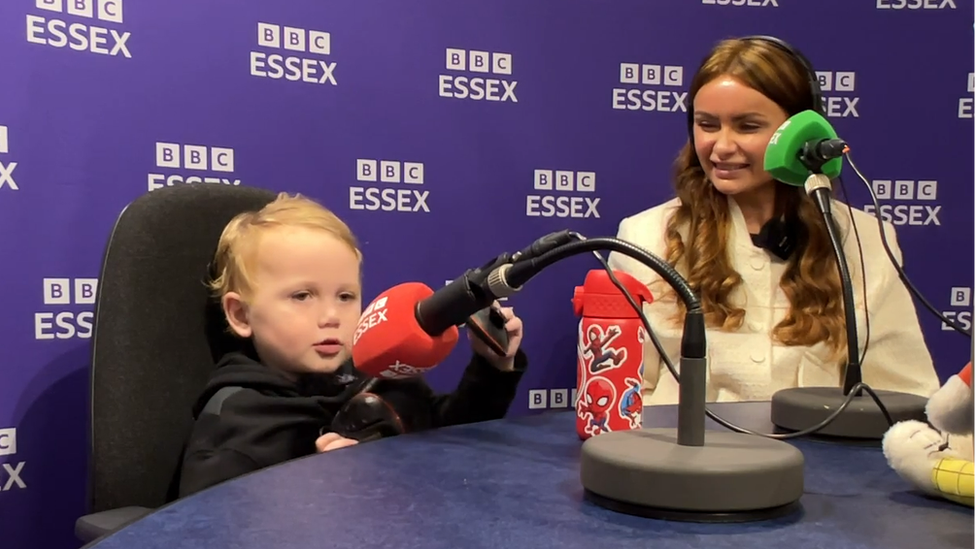
Chloe says her son Jesse is an "inspiration"
Chloe said she had received a phone call from staff at Great Ormond Street Hospital in London, who said they wanted to start Jesse on the drug, Kaftrio, as soon as possible.
He will undergo blood and lung tests on 5 December, with the hope of starting the drug the following week.
She said: "We've been fighting for this for four years. The thought that Jesse is now starting this drug before Christmas is just incredible. What a Christmas gift."
Kaftrio is already authorised for treating children aged six and over with a certain type of cystic fibrosis.
The drug would be administered as a sachet of granules to be mixed with soft food.
Jesse's strict daily routine sees his family get up early so he can take seven different types of medication and carry out physiotherapy and breathing exercises.
It is hoped he will need less medication as he gets older.
"His life could be changed overnight from just one tablet," Chloe previously said.
A Department of Health and Social Care spokesperson said it has invested more than £1.1bn in research into rare diseases.
They added: "It is vital that patients have access to new and innovative medicines like these, but the NHS must use its budget fairly and for the good of all patients."

Follow East of England news on Facebook, external, Instagram, external and X, external. Got a story? Email eastofenglandnews@bbc.co.uk or WhatsApp 0800 169 1830
Related topics
- Published16 November 2023
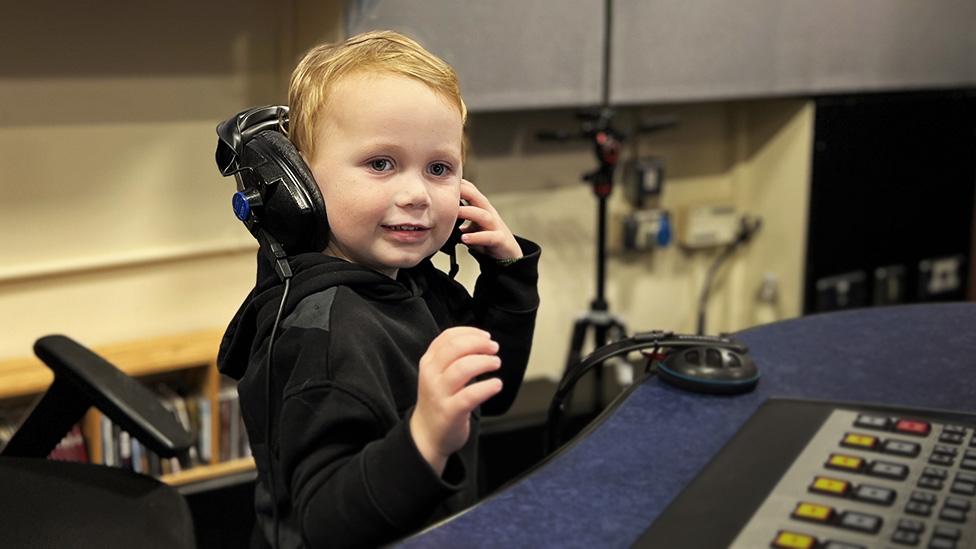
- Published15 November 2023
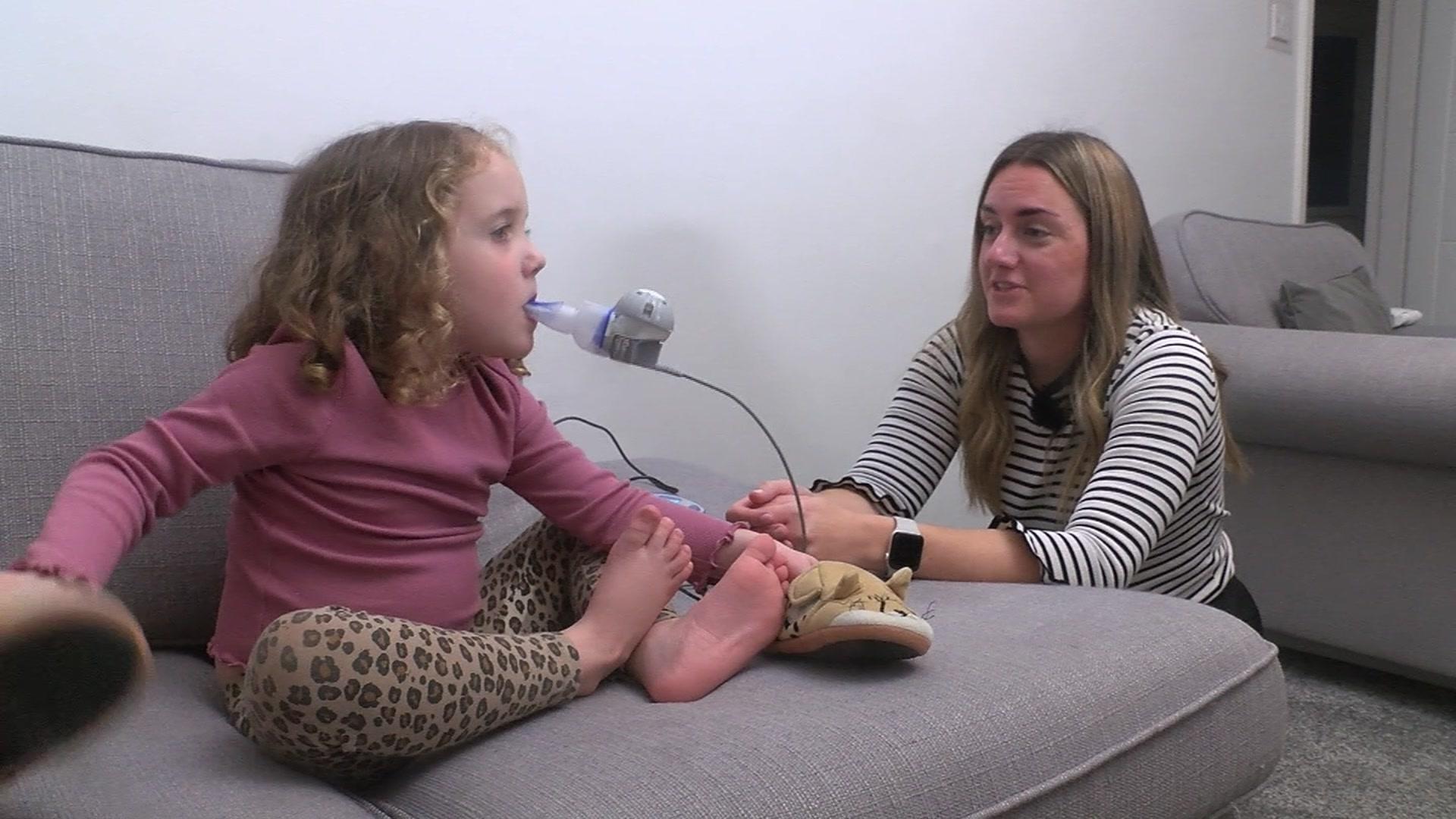
- Published13 November 2023
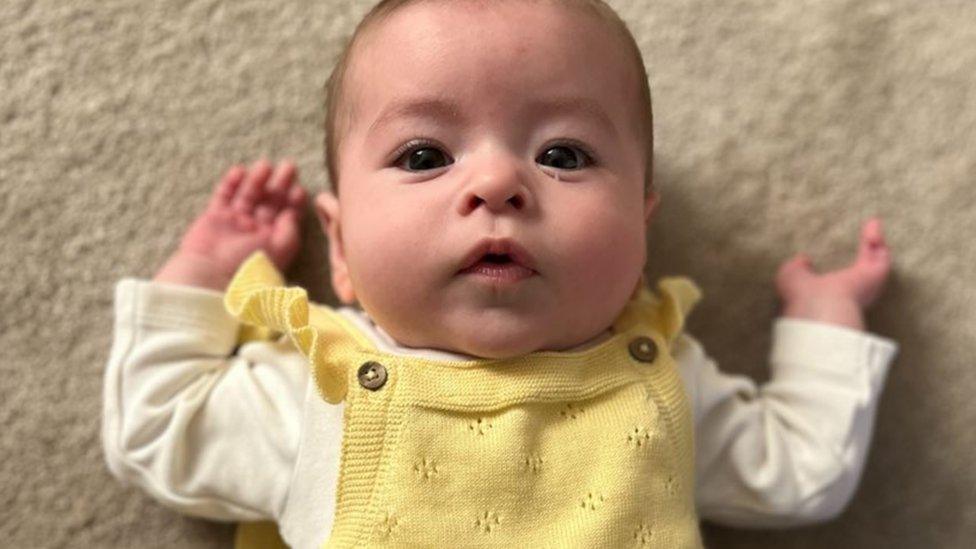
- Published10 November 2023
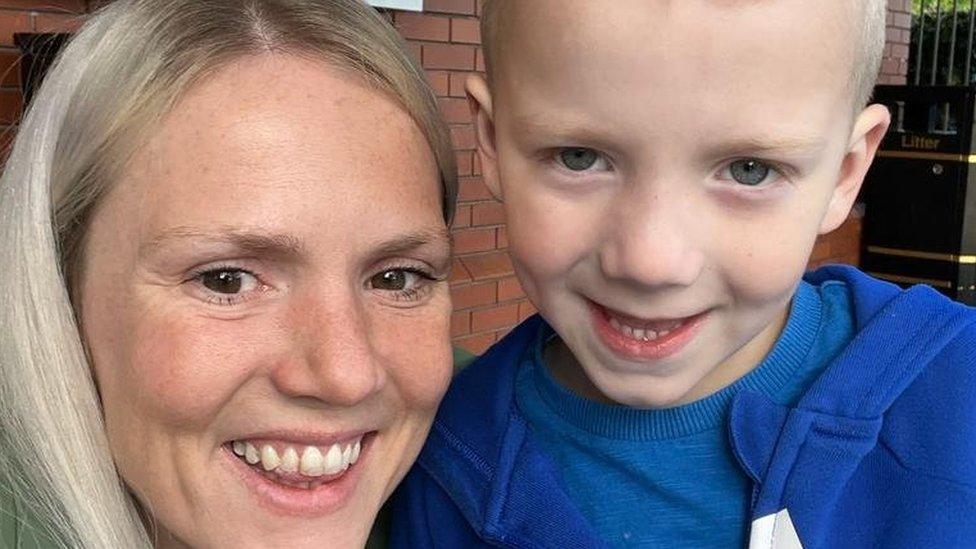
- Published30 June 2023
